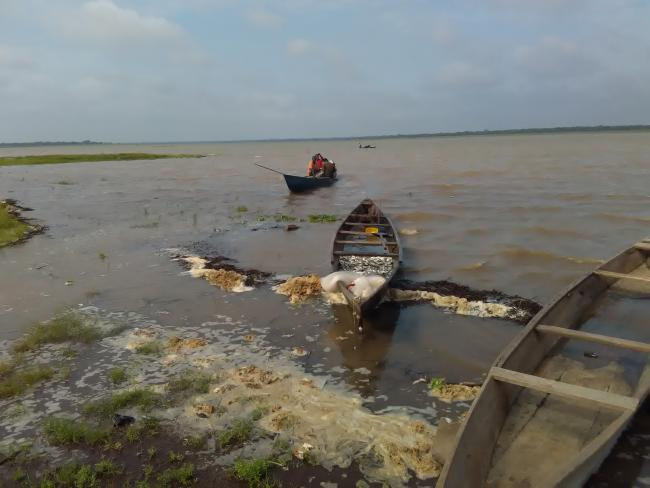Background
Tono, Bontanga and Golinga reservoirs are among the top five largest reservoirs in Northern Ghana. These reservoirs are used for irrigational farming and fishing. They are essential food security and livelihood resource for the rural majority poor in northern Ghana.
The Tono, Bontanga and Golinga reservoirs have different physical features and the main objective of this PhD project is to understand how differences in reservoir morphometry (total size, surface area/volume ratio), water budget (inflow, precipitation/evaporation ratio) and physicochemical conditions influence the development of ecosystem structures and fisheries productivity.
Project focus areas:
- Elucidating difference in fisheries productivity of Tono, Bontanga and Golinga reservoirs: Relating age, morphometric and hydro-chemical features of the reservoirs to their productivity.
- Fisheries assessment of target species of Tono, Bontanga and Golinga reservoirs: Elaborating management advice for Auchenoglanis occidentalis, Oreochromis niloticus, Sarotherodon galilaeus, and Coptodon zillii.
- Comparative analysis of biodiversity, food web structure and fisheries productivity of Tono, Bontanga and Golinga reservoirs: Assessing differences in ecosystem attributes among the reservoirs.
The project focuses on defining a range of physical attributes and developmental conditions under which man-made reservoirs can provide and sustain significant fisheries production. Moreover, fisheries management in reservoirs requires alternative sustainable management scenarios which are derivable from ecosystem modelling, for example, using ecosystem modelling software ECOPATH with ECOSIM. As observed for other fisheries ecosystems, sustainable exploitation of the Tono, Bontanga and Golinga reservoirs is necessary if the fisheries are to make any significant continuous impacts on the socio-economic life of the rural communities. Subsequently, the study will elaborate management advice for sustainable exploitation of the reservoirs fisheries.
Project Partner |
|---|
| University for Development Studies, Ghana |





